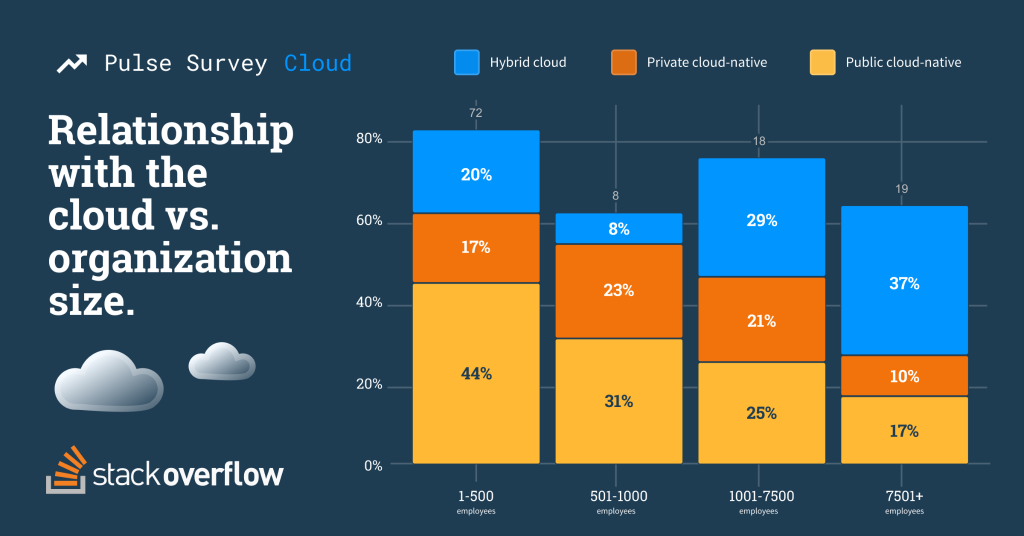
Stack Overflow’s second pulse survey focuses on the cloud and highlights a migration acceleration of three to four years following the pandemic.
It’s a well-known fact that some of the biggest technological and societal advancements happened in times of global chaos, often from sheer necessity. While the pandemic brought much tragedy and grief that no-one wants to repeat, there were at least some silver linings in terms of accelerating digital transformations.
Remote/hybrid working is one of the biggest social changes that emerged from the pandemic and many businesses and individuals have discovered the productivity and wellbeing benefits from at least offering such a model and expect to continue. While many startups and cutting-edge companies have supported such working models for some time, many of the older legacy firms reluctant to embrace change have been forced to race to support them.
IT teams who raced to ensure staff could securely work remotely are among the relatively unsung heroes of the pandemic. 90 percent of respondents to Stack Overflow’s survey indicated their companies increased cloud usage over the past year.
Prior to the pandemic, Stack Overflow users asked just over 6,000 cloud-related questions per month on average. When lockdowns began across 100 countries in March 2020, Stack Overflow witnessed a huge spike to around 8,000 questions per month.
In a blog post, Stack Overflow wrote:
“We saw about four years worth of our average annual growth, in other words, in the span of just three months.
Because so many developers use Stack Overflow each week for work, we can look at this activity as a proxy for what was happening inside of companies around the globe.
A massive uptake of new tools led to a tsunami of new questions, and this elevated level of collaboration on the platform lasted over a year.”
The platform used historical data and a Bayesian structural time-series model to predict what the number of questions asked on Stack Overflow would have looked like post-February 2020 if COVID-19 never happened.
Without the pandemic, Stack Overflow expects that it would have seen an average of 6.20K questions asked per month. Essentially, COVID-19 bumped the overall number of questions by around 15 percent.
Most large organisations are using a hybrid cloud environment while the majority of smaller businesses are using a public cloud:

Across the three largest regions (N. America, Europe and Asia) 40-45 percent of developers are currently developing for the cloud. Most cloud developers are doing it professionally (73%), followed by hobbyists (22%) and students (3%).
Stack Overflow’s pulse surveys are run every few months about specific topics and are designed to complement its annual Developer Survey.
You can find our coverage of the 2021 edition of Stack Overflow’s developer survey here.
(Photo by Jean-Philippe Delberghe on Unsplash)

Want to learn about DevOps from leaders in the space? Check out the DevOps-as-a-Service Summit, taking place on 1 February 2022, where attendees will learn about the benefits of building collaboration and partnerships in delivery.







